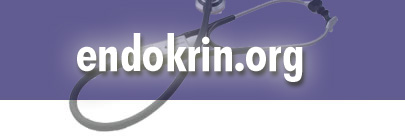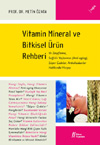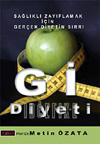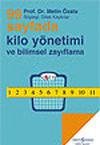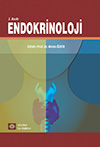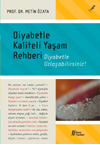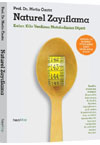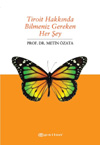|
YENİ ARAŞTIRMALAR
TİROİDİ FAZLA ÇALIŞAN VE İLACA ALLERJİSİ OLANLARDA HASTALAR DEX, LUGOL VE BETABLOKER İLAÇLARLA AMELİYATA HAZIRLANIR
Swiss Med Wkly. 2016 Jan 14;146:w14243. doi: 10.4414/smw.2016.14243. eCollection 2016.
Rapid preoperative blockage of thyroid hormone production / secretion in patients with Graves' disease.
Fischli S1, Lucchini B1, Müller W2, Slahor L1, Henzen C1.
Author information
Abstract
PRINCIPLES:
Preoperative management of hyperthyroid patients with Graves' disease who are unable to tolerate thionamides or have poor adherence to therapy is a challenging clinical problem. The goal of our study was to demonstrate the clinical efficacy of a rapid preoperative thyroid hormone blocking protocol and to assess specific surgical and treatment-related complications.
METHODS:
Ten patients with thyrotoxicosis due to Graves' disease were treated with a rapid thyroid hormone blocking protocol of Lugol's solution, dexamethasone and a beta-blocker. Two patients continued to receive antithyroid therapy with carbimazole. Adrenal function was assessed 4-6 weeks postoperatively with a low dose (1 µg) adrenocorticotrophic hormone-stimulation test.
RESULTS:
Before treatment, all patients had severe hyperthyroidism. Baseline median and interquartile range (IQR) of fT4 was 68.9 (45.7-92.1) pmol/l, and baseline median fT3 and IQR, 30 (19.1-40.9) pmol/l. After 10 days of treatment, the levels of free hormones were significantly reduced with fT4 concentrations slightly elevated (fT4, 26.7 [17-36.4] pmol/l, p <0.001 compared with corresponding pretreatment values), and the fT3 concentration was normal in 8/10 patients (fT3, 6.1 [4.6-7.6] pmol/l, p <0.001 compared with corresponding pretreatment values). All patients were clinically euthyroid with a heart rate of <80/min. Drug tolerability was excellent, and there were no side effects or exacerbation of hyperthyroidism. The peri- and postoperative course was uneventful in all cases. Adrenal function was normal in 7 out of 10 patients 4-6 weeks postoperatively. Three patients showed prolonged secondary adrenal insufficiency with normalisation of adrenal function after 3 to 6 months.
CONCLUSION:
Rapid and effective preoperative preparation of patients with Graves' disease is achievable with Lugol's solution, dexamethasone and a beta-blocker. The risk of temporary hypothalamic-pituitary-adrenal axis suppression has to be taken into account.
...........................................................................
OBEZ-KİLOLU ÇOCUKLARDA TSH HORMONU DAHA YÜKSEK ÇIKIYOR.
J Clin Res Pediatr Endocrinol. 2015 Jan 18. doi: 10.4274/jcrpe.2687. [Epub ahead of print]
Thyroid Function and Thyroid Autoimmunity in Relation to Weight Status and Cardiovascular Risk Factors in Children and Adolescents: a Population-Based Study.
García García E, Vázquez López MÁ, García Fuentes E, Galera Martínez R, Gutiérrez Repiso C, García Escobar I, Bonillo Perales A.
Abstract
OBJECTIVE:
In obese subjects, slight increases have been observed in thyrotropin (TSH), but data in children are scarce. We aim to evaluate whether thyroid function and autoimmunity vary with weight status in a healthy population of children and adolescents and to determine whether hyperthyrotropinemia is associated with any cardiovascular risk factor.
METHODS:
Cross-sectional epidemiological study in Almería (Spain). Representative sample of 1317 healthy subjects aged 2-16 years. Thyroid function, thyroid autoimmunity and cardiovascular risk factors were measured. Statistical tests: chi-square, analysis of variance and multiple linear regression.
RESULTS:
The obese children and adolescents had thyrotropin levels (mean (standard deviation)) of 3.12 (2.44) mU/L. These levels were higher than those of the subjects with overweight, 2.79 (1.51), and normal weight, 2.73 (1.30), (p=0.02). Levels of free thyroxine and urinary iodine did not differ significantly between the groups. The prevalence (percentage (95% confidence interval)) of thyroid autoimmunity was lower in the individuals with normal weight, 2.9% (2.0-4.2), than in those with overweight, 6.3% (3.9-9.9), and obesity, 5.6% (2.5-11.3) (p=0.02). TSH levels were associated with obesity (β=0.36; p<0.001) and thyroid autoimmunity (β=1.10; p<0.001). Nevertheless, they were not associated with any cardiovascular risk factor.
CONCLUSION:
The obese children and adolescents had higher levels of thyrotropin than those with overweight and normal weight. These differences were of very little clinical significance, and are accounted in part for by the higher prevalence of thyroid autoimmunity in these subjects. This hyperthyrotropinemia was not associated with any cardiovascular risk factor.
..................................................................................
TİROİD BEZİ AZ ÇALIŞAN HASTALARDA T4 TEDAVİSİ ÇOĞUNLUKLA BAŞARILIDIR. ŞİKAYETİ OLANLARDA İLAVE T3 VERİLEBİLİR
Ann Intern Med. 2016 Jan 5;164(1):50-6. doi: 10.7326/M15-1799.
The History and Future of Treatment of Hypothyroidism.
McAninch EA, Bianco AC.
Abstract
Thyroid hormone replacement has been used for more than a century to treat hypothyroidism. Natural thyroid preparations (thyroid extract, desiccated thyroid, or thyroglobulin), which contain both thyroxine (T4) and triiodothyronine (T3), were the first pharmacologic treatments available and dominated the market for the better part of the 20th century. Dosages were adjusted to resolve symptoms and to normalize the basal metabolic rate and/or serum protein-bound iodine level, but thyrotoxic adverse effects were not uncommon. Two major developments in the 1970s led to a transition in clinical practice: 1) The development of the serum thyroid-stimulating hormone (TSH) radioimmunoassay led to the discovery that many patients were overtreated, resulting in a dramatic reduction in thyroid hormone replacement dosage, and 2) the identification of peripheral deiodinase-mediated T4-to-T3 conversion provided a physiologic means to justify l-thyroxine monotherapy, obviating concerns about inconsistencies with desiccated thyroid. Thereafter, l-thyroxine monotherapy at doses to normalize the serum TSH became the standard of care. Since then, a subgroup of thyroid hormone-treated patients with residual symptoms of hypothyroidism despite normalization of the serum TSH has been identified. This has brought into question the inability of l-thyroxine monotherapy to universally normalize serum T3 levels. New research suggests mechanisms for the inadequacies of l-thyroxine monotherapy and highlights the possible role for personalized medicine based on deiodinase polymorphisms. Understanding the historical events that affected clinical practice trends provides invaluable insight into formulation of an approach to help all patients achieve clinical and biochemical euthyroidism.
......................................................
BOY UZAMASI GECİKEN ÇOCUKLARDA MUTLAKA TİROİD HORMON ÖLÇÜMÜ YAPTIRINIZ.
Iran Red Crescent Med J. 2015 Nov 1;17(11):e20306. doi: 10.5812/ircmj.20306. eCollection 2015.
Delayed Diagnosis of Hypothyroidism in Children: Report of 3 Cases.
Ghaemi N1, Bagheri S1, Elmi S1, Mohammadzade Rezaee S2, Elmi S1, Erfani Sayyar R3.
Author information
Abstract
INTRODUCTION:
Hypothyroidism is the most common endocrine disorder in children and presented with various sign and symptoms; its diagnosis needs a high index of suspicion.
CASE PRESENTATION:
We report 3 cases with unusual presentations of hypothyroidism and with delay in diagnosis that referred to Pediatric Endocrine Outpatient Clinic in Mashhad University of Medical Sciences, Mashhad, Iran with different clinical manifestations. They had decreased Thyroxin (T4) and increased thyroid stimulating hormone (TSH) levels. One case had mental retardation and deafness, but the other two cases had normal neurodevelopment. Some additional interesting findings were as follows: short stature, delayed bone age, teeth eruption impairment, hair loss, anemia and hypercholesterolemia, persistent and long-term constipation that had led to several abdominal surgeries. After a year of hormonal replacement therapy, their growth parameters and hematological values improved.
CONCLUSIONS:
We recommend thyroid hormonal evaluation for any children with short stature, especially with delayed bone age, in order to detect and treat hypothyroidism at the right time. It seems that more attention to pediatric growth is necessary.
...............................................................
|

